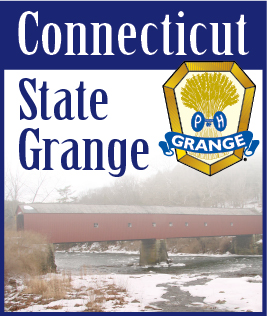| APRIL 12, 2011 -- National Grange Master Ed Luttrell, of Sandy, Ore., recently appeared before the Idaho State Senate Agriculture Committee to discuss the Grange’s opposition to the proposed elimination by the U.S. Postal Service of Saturday mail delivery. Idaho State Grange President Donald Johnson, of Meridian, Idaho, introduced Luttrell, who had testified before the Postal Regulatory Commission in September. Luttrell told committee members that The Grange feels the proposed mail service reduction would be detrimental to the lives of those living in rural areas.
"Idaho, like many of the western states, has a large rural population that relies on the U.S. Postal Service for many critical items such as prescription medications and livestock vaccines, as well as day-to-day business correspondence,” Luttrell said. “There is no population that relies as much on regular mail service than our folks living and doing business in rural and remote areas.”
Luttrell said he hoped his comments to the committee would help them to understand the grassroots nature of The Grange.
“The policies and efforts of The National Grange are reflective of the members across the country, and our members look to us to advocate on their behalf on issues such as the Postal Service’s proposed reduction of service,” Luttrell said.
On March 24, the Postal Regulatory Commission posted their advisory opinion regarding the reduction of mail service from six to five days a week to the U.S. Postal Service. In that opinion (PRC Docket No. N2010-1), the PRC said USPS overestimated their savings through such a move by about $1.0 billion and neglected to evaluate the impact the proposal would have on customers who reside or conduct business in rural, remote or noncontiguous areas.
Established in 1867, The National Grange is the oldest agricultural and rural community service organization. The Grange, a nonpartisan, nonprofit fraternal organization, has evolved into the nation ’ s leading rural advocacy organization, a major benefactor to local communities and a local social center, in many instances. There are more than 200,000 members across 40 states.
Top national priorities are published in The Grange’s annual Blueprint for Rural America, located online along with more information about The Grange. |
